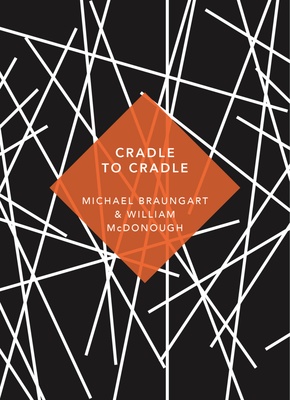Cradle to Cradle - (Patterns of Life)
| Verlag | Random House UK |
| Auflage | 2019 |
| Seiten | 192 |
| Format | 12,9 x 17,8 x 1,2 cm |
| Gewicht | 142 g |
| Artikeltyp | Englisches Buch |
| Reihe | Patterns of Life |
| ISBN-10 | 1784873659 |
| EAN | 9781784873653 |
| Bestell-Nr | 78487365UA |
Natur als Vorbild. Wie die Produkte von morgen zu den Rohstoffen von übermorgen werden können. Ideen für eine neue industrielle Revolution.
Gebrauchsanweisung für das 21. Jahrhundert.
Autos aus Autos? Schuhe als Düngemittel für unsere Balkonblumen? Zukünftig gibt es nur noch zwei Arten von Produkten: Verbrauchsgüter, die vollständig biologisch abgebaut werden können, und Gebrauchsgüter, die sich endlos recyclen lassen. Die Devise lautet: Nicht weniger müssen wir produzieren, sondern verschwenderisch und in technischen und biologischen Kreisläufen. Eine ökologisch-industrielle Revolution steht uns bevor, mit der Natur als Vorbild. Und was die beiden Fachleute in anschaulicher Weise darbieten, ist keineswegs nur graue Theorie, sondern das Ergebnis eigener praktischer Erfahrungen: Michael Braungart und William McDonough erproben seit Jahren mit Firmen wie Ford, Nike, Unilever und BP erfolgreich die Realisierbarkeit ihrer Ideen. Natur als Vorbild. Wie die Produkte von morgen zu den Rohstoffen von übermorgen werden können. Ideen für eine neue industrielle Revolution.
Klappentext:
Michael Braungart and William McDonough propose a plan for our planet in this stunning new edition of their radical ecological manifesto.
This book proposes a new vision for modern industry. Instead of our current wasteful and polluting methods of manufacturing, we could be taking nature as a model for making things. With the right redesign, objects that have come to the end of their useful lives should provide the basis for something new. In designing and producing products we need to stop worrying about being \'less bad\' and start finding ways of actually being good.
PATTERNS OF LIFE: SPECIAL EDITIONS OF GROUNDBREAKING SCIENCE BOOKS
Rezension:
The best argument for good design is that it lasts. The best argument for good science is that it deplores waste. I\'m bored with guilty and technologically illiterate environmental Luddites describing a future of guilt and privation led in caves. There\'s an alternative responsible future persuasively offered by Braungart and McDonough. The survival of the planet can be re-stated in terms of
stimulus, opportunity, challenge and reward. Works for me.
Stephen Bayley

